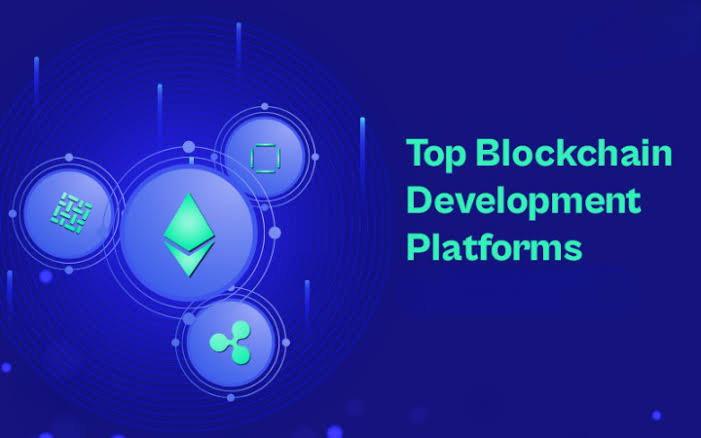Blockchain technology has revolutionized various industries by providing decentralized secure and transparent way to record transactions and manage data. Developers must choose right blockchain platform. This is crucial for building efficient and scalable applications. Numerous options exist. Each offers unique features and capabilities. It’s essential to understand what each platform brings to table. This guide explores top 10 blockchain platforms that developers should consider for projects.
1. Ethereum
Ethereum is one of most popular and widely used blockchain platforms. It was first to introduce smart contracts. These are self-executing contracts with terms directly written into code. Ethereum's robust developer community and extensive documentation make it ideal choice for building decentralized applications. These are known as dApps.
With recent transition to Ethereum 2.0 the platform has improved scalability and energy efficiency. It is even more attractive for developers.
2. Hyperledger Fabric
Hyperledger Fabric is permissioned blockchain platform developed by the Linux Foundation. It is designed for enterprise use. Offering modular architecture that allows developers to plug in their preferred components. Hyperledger Fabric supports private transactions and confidential contracts. Making it suitable for industries like finance healthcare and supply chain management. Its scalability and flexibility make it preferred choice for businesses looking to implement blockchain solutions.
3. Cardano
Cardano is third-generation blockchain platform that focuses on sustainability scalability. And interoperability. It uses unique proof-of-stake consensus mechanism called Ouroboros. This is more energy-efficient than traditional proof-of-work. Cardano's layered architecture separates the ledger of account values. From the reason why values are moved. Making it flexible and secure platform for developers. Its strong emphasis on peer-reviewed research and formal verification ensures high-quality code. And reliable applications.
4. EOS
EOS is known for its high performance and scalability, making it suitable for large-scale dApps. It offers a developer-friendly environment with features like parallel processing and asynchronous communication. EOS also provides a robust set of tools and libraries, simplifying the development process. The platform's Delegated Proof of Stake (DPoS) consensus mechanism ensures fast and efficient transactions, attracting developers who need a high-throughput blockchain solution.
5. Polkadot
Polkadot aims to enable interoperability between different blockchains, allowing them to share information and work together seamlessly. It features a unique sharding mechanism called parachains, which can process multiple transactions in parallel, enhancing scalability. Polkadot's Substrate framework makes it easy for developers to create custom blockchains tailored to specific needs. This flexibility and focus on interoperability make Polkadot an attractive platform for developers building cross-chain applications.
6. Binance Smart Chain (BSC)
Binance Smart Chain is a blockchain platform that runs parallel to Binance Chain, enabling the creation of smart contracts and decentralized applications. It offers fast transaction times and low fees, making it a cost-effective option for developers. BSC is compatible with the Ethereum Virtual Machine (EVM), allowing developers to easily port their Ethereum-based dApps to BSC. Its growing ecosystem and strong backing from Binance provide ample opportunities for innovation and collaboration.
7. Tezos
Tezos is a self-amending blockchain platform that allows for on-chain governance and protocol upgrades without hard forks. This feature ensures the platform can evolve and adapt to new technologies and requirements over time. Tezos uses a liquid proof-of-stake consensus mechanism, which is energy-efficient and promotes decentralization. The platform's emphasis on security and formal verification makes it a reliable choice for developers looking to build secure and scalable dApps.
8. Solana
Solana is a high-performance blockchain platform known for its fast transaction speeds and low costs. It uses a unique consensus mechanism called Proof of History (PoH), which improves the efficiency and scalability of the network. Solana's architecture supports parallel transaction processing, making it capable of handling thousands of transactions per second. This performance makes Solana an ideal platform for developers building high-frequency trading systems, gaming applications, and other use cases requiring quick and affordable transactions.
9. Algorand
Algorand is a blockchain platform designed for speed, security, and decentralization. It uses a unique consensus algorithm called Pure Proof of Stake (PPoS), which ensures fast and efficient transaction processing. Algorand's architecture supports instant transaction finality, making it suitable for financial applications, payments, and other use cases requiring immediate settlement. The platform also offers robust developer tools and resources, making it easy for developers to build and deploy dApps.
10. Avalanche
Avalanche is a blockchain platform that aims to offer high performance, scalability, and customizable networks. It uses a unique consensus mechanism called Avalanche consensus, which provides quick and secure transaction confirmation. The platform supports the creation of custom blockchain networks, known as subnets, allowing developers to tailor their networks to specific requirements. Avalanche's focus on interoperability and modular architecture makes it an attractive option for developers looking to build versatile and scalable blockchain applications.
Conclusion
Choosing the right blockchain platform is crucial for the success of any project. Each platform offers unique features, strengths, and capabilities, catering to different needs and use cases. Whether you prioritize scalability, security, interoperability, or ease of development, the top 10 blockchain platforms listed above provide a solid foundation for building innovative and efficient blockchain applications. By understanding the distinct advantages of each platform, developers can make informed decisions and leverage the full potential of blockchain technology to drive their projects forward. As the blockchain landscape continues to evolve, staying informed about the latest developments and emerging platforms will be essential for maintaining a competitive edge in the industry.
